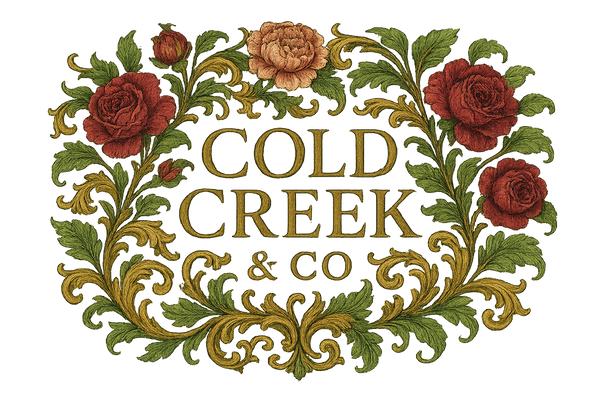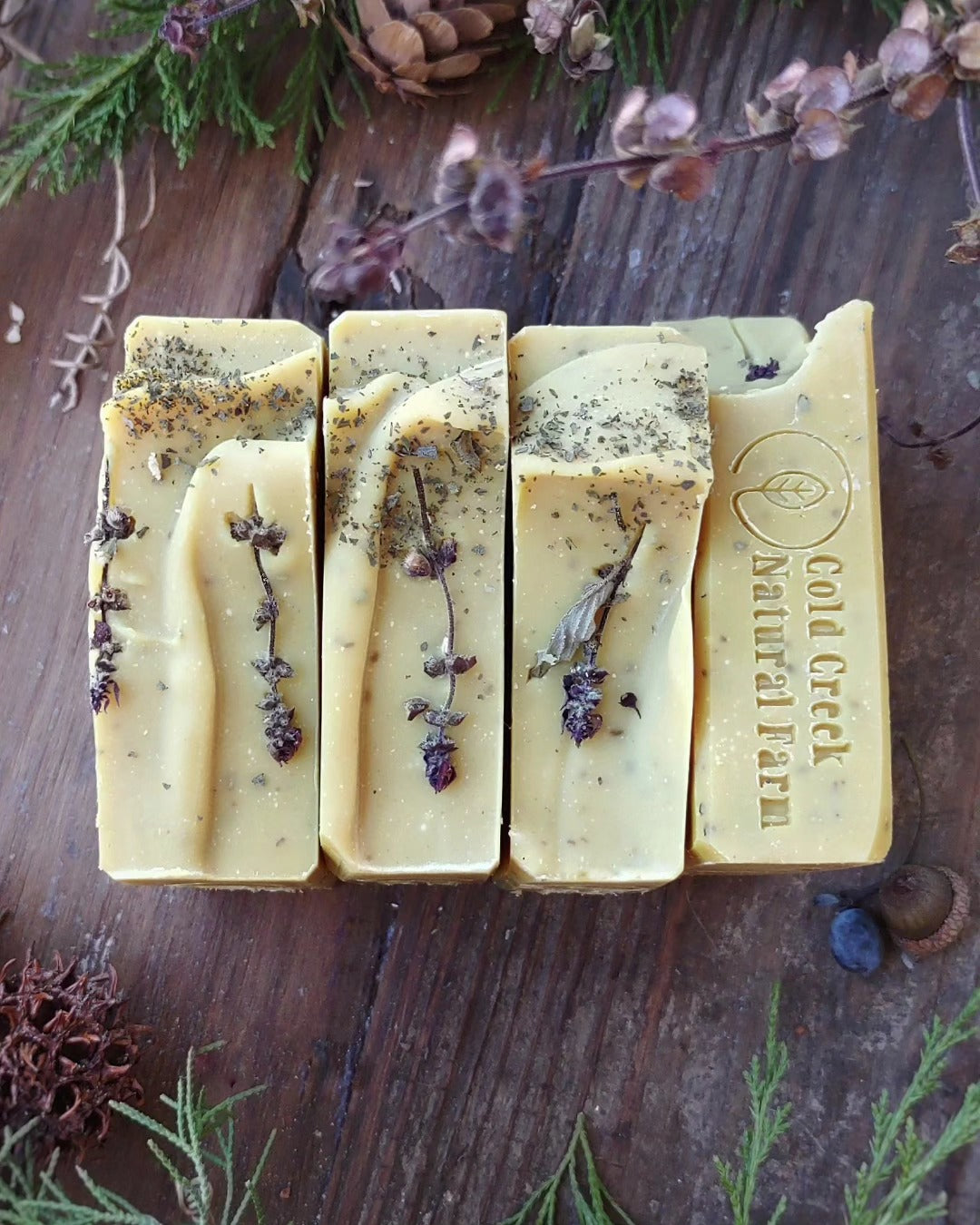Why should you care about the soap you choose?
Certain soaps are designed to deodorize, while others have antimicrobial, anti-aging, or moisturizing properties. Soap is a ubiquitous item that nearly every person uses multiple times a day, making it a critical tool in preventing the spread of bacterial and viral diseases.
- But not all soaps are equal in potency or efficacy, and not every soap is good for your skin.
Understanding the Benefits of Handmade Soap Over Commercially Made Soap
When it comes to soap, there are two primary types to choose from – handmade 'natural' soaps and commercially made soaps. Although commercial soaps are typically less expensive than handmade soaps, the lower cost may not necessarily be a good thing. In this article, we'll delve into the world of natural soap and evaluate whether the added expense is worth the benefits it provides.
Here are the two basic types of soap:
- Handmade, ‘natural’ soaps
- Commercially made soaps
Prioritizing Our Skin Health: The Importance of Conscious Soap Use
Our skin is the largest organ of the human body and it is constantly in contact with the outside world. Therefore, it is crucial to pay attention to what we expose it to. When we take care with the water we drink and the food we eat, it's important to remember that what we apply to our skin should also be a top concern.
Soap is a primary example since it is directly applied to our skin. To minimize the exposure to potentially harmful toxins, we should consider using organic, natural soap.
1. The Benefits of Natural and Organic Soaps for Your Skin
Using natural ingredients is the foundation of creating natural soaps, while organic soaps take it a step further with organic natural ingredients. Typically, organic soaps are made from a blend of butter and oils derived from various plants that are rich in vitamins, nutrients, and antioxidants. These substances are vital for the growth, maintenance, and health of human skin, hair, and other body parts. Some natural soaps also contain additional beneficial ingredients such as clays, salts, essential oils, and botanical extracts.
Although handmade soaps are more time-consuming to produce and typically use higher quality ingredients, they are generally gentler on sensitive skin. However, it's important to try out a variety of natural soaps to discover the one that is best suited to your skin type and preferences.
2. The Advantages of Using Natural Soap
Are you considering making the switch to natural soap? Here are some benefits to consider:
- Real Soap Rather than "Fake Soap"
Many products that are advertised as "cleanser," "body bar," "body wash," "beauty bar," "skincare bar," and even "deodorant soap" are actually detergent-based products that are not true soaps at all.
- Natural Soap is Exceptionally Moisturizing
One of the benefits of using real soap is the production process' by-product, glycerin. Glycerin is a fantastic skin moisturizer since it attracts moisture around the skin. Traditional handmade soaps contain glycerin, which hydrates the skin during bathing. In contrast, many commercially manufactured soaps can dehydrate skin. Why? Because commercial soaps typically undergo a process that removes glycerin, which is then extracted and used in other skincare products. Soap without glycerin can cause dry, ashy, itchy skin that looks anything but healthy.
_Handmade soap, however, is made to retain its glycerin content, leaving your skin more moisturized and healthy-looking._

When a company produces soap in bulk, it often maximizes profits by utilizing cheaper, synthetic ingredients. However, these substitutes, which are frequently used, can be detrimental to several bodily systems, including the endocrine, respiratory, and immune systems. Furthermore, the synthetic ingredients can also dry out the skin.
Commercial soaps also contain substances, such as Parabens, Sulphates, and Triclosan, which can trigger allergies, affect hormone levels, and may even increase the risk of certain cancers.
In contrast, natural soaps are made using natural ingredients such as olive and coconut oils, shea butter, and grass-fed tallow. These ingredients are considered healthy and nourishing for the skin.
Our product line includes soap bars infused with Tea Tree Oil, Activated Charcoal, and Organic Honey, among others, which are all-natural and beneficial for the skin.

4. Cruelty-Free and Animal-Friendly
The Advantages of Natural, Organic Soaps for You and the Environment
Are you looking for a more environmentally-friendly alternative to traditional soaps? Look no further than natural, organic soaps. Unlike their counterparts, these soaps are not tested on animals and are almost always plant-based. Additionally, their production does not require large-scale factories that can cause environmental harm.
Organic soap manufacturers tend to be smaller operations that use botanical herbs and extracts to create their products. Coconut and palm oils serve as the base ingredients, with essential oils from a variety of plants, flowers, spices, and fruits added for fragrance. In some cases, animal products like tallow or lard may be used, but they will be clearly marked. Most importantly, natural soaps do not require animal testing because they contain no pesticides and are free from synthetic chemicals.
Organic soaps are typically crafted in small batches by local producers, offering better quality control and a wider range of product options. Unlike large factory equipment that requires extensive retooling, each small batch can be changed to a new scent or style with ease. This allows for easy customization of color, shape, size, texture, scent, batch size, and other features to provide maximum choice for the consumer. You can even find organic soaps with unique scents like coffee, cinnamon, peppermint, or fruit.
One of our best selling products is Honey and Oatmeal Goat milk Soap.
Our Lemongrass and Calendula Face Soap is also a very unique yet healthy soap choice.

Big-brand soaps are churned out on a factory line, like clones of each other, with no regard for individuality or quality. These soaps come with a hefty price tag, not just in your wallet but also in your health. On the other hand, organic bars are unique and full of personality, just like the natural ingredients they're made from! Sure, they may differ slightly in size or texture, but the one thing that never changes is the absence of harmful chemicals and the presence of nourishing goodness in every bar.
7. Better for the Environment
Organic soaps are an eco-friendly alternative that eliminates the production of harmful environmental poisons or toxins. They break down easily after use, leaving no harmful impact on the water cycle or the wildlife that share our rivers, lakes, and oceans. Aligned with nature, organic soaps are a clear winner in terms of reducing our ecological footprint. Moreover, the great quality and efficacy of organic soaps coupled with the pleasure you get from using a more unique product, makes them an easy choice.
8. Rich in Antioxidants
The Benefits of Using Organic Soap for Healthier Skin
Organic soaps contain natural antioxidants that are not extracted during the soap-making process. This means that these ingredients can be effective in repairing the skin by reducing inflammation and keeping it hydrated. With its gentle pH levels (usually between 8 and 10), organic soap helps to care for the skin in the long run, while ensuring that you stay clean and refreshed in the present. By incorporating organic soap into your routine, you can achieve youthful and healthy-looking skin.

9. Lots of Glycerin for Natural Skin Benefits
The Benefits of Glycerin for Skin Care and Why It Should Be Left in Soap
Glycerin, also known as glycerol, has natural properties that attract alcohol and water, making it an effective skin cleanser and moisturizer. It's no surprise that glycerin has been a popular ingredient in skin care products for years. According to Science Daily, glycerin can even help to clear up skin conditions.
Regular use of glycerin on the skin can lead to improved texture and protection against irritants. It's especially helpful for sensitive skin, as it provides a boost rather than causing further irritation.
However, many soap and beauty bar manufacturers extract the glycerin from their products for two reasons. Firstly, it improves the soap's shelf life, allowing it to sit in a warehouse or on a shelf for years before use. Secondly, the extracted glycerin is then used to make moisturizing products.
But why not leave the glycerin in the soap in the first place, and avoid the need to buy a separate moisturizer? By keeping the glycerin in the soap, it can help prevent skin dryness and damage in the first place. Additionally, smaller, fresher batches of soap can help to maintain its quality and effectiveness. While this approach may cost a bit more, it's still more cost-effective than buying a mass-produced bar of soap and a moisturizer separately.

10. They Don't Use Preservatives
The Benefits of Organic Products and Their Shorter Shelf Life
While organic products generally have a shorter shelf life, there's a good reason behind it. Non-organic products often contain preservatives that can be harmful to both humans and the environment. It's a matter of deciding what's more important: a product that can sit unused on a shelf for a long time or one that's healthier for the user. The choice is clear.
The Dangers of Antibacterial Soaps: What You Need to Know
Many antibacterial soaps contain harmful ingredients such as triclosan, parabens, and sulfates. These chemicals have been linked to increased risks of developing cancer, hormonal imbalances, and even reproductive system issues. Fortunately, organic soaps provide a safer alternative to these toxic soaps. Instead of harmful chemicals, they contain natural antibacterial agents such as essential oils. Not only do these oils fight harmful bacteria, but they also produce wonderful fragrances like lavender, tea tree, eucalyptus, and peppermint, among others.
The Benefits of Aromatherapy for Mind and Body with Natural Soap
Aromatherapy can be a powerful tool to combat stress and improve your general mood and outlook. By using natural soap infused with essential oils, you can experience the soothing effects of aromatherapy in your daily routine.
Keep in mind that the unique composition of essential oils cannot be replicated in a lab.
If natural ingredients are substituted with synthetic ones, the therapeutic benefits may be lost. Natural essential oils interact with the brain's neurochemicals, promoting an overall sense of well-being that can improve your mind, body, and spirit.
- Peace, Love & Creativity
- XO Cheryl & Audrey

